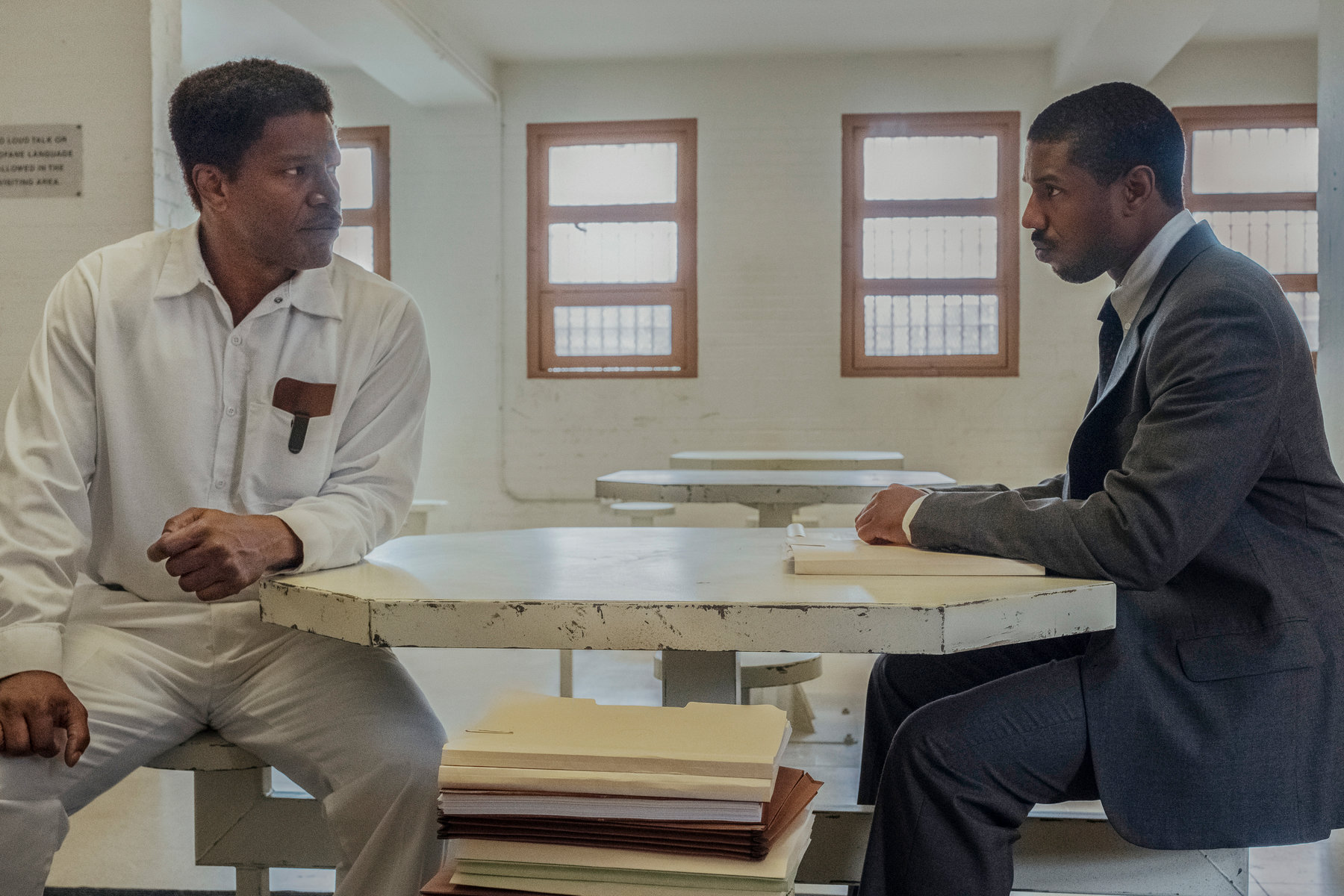Play all audios:
By Eleanor Ringel Cater “Just Mercy” would be the one of the best movies of the year if the year were 1988 or even 1968. There were moments when I glanced away from the screen, looked back
and fully expected to see Sidney Poitier. That’s not to dismiss Michael B. Jordan (“Creed,” “Black Panther”) who does very fine job as the Poitier-ish lawyer from Harvard who comes down to
redneck-central (i.e., Alabama) to defend an innocent man in a murder trial. Bryan Stevenson (Jordan) can be forgiven for being a bit surprised that things are how they are in Monroeville,
hometown of Harper Lee (in the film’s best running gag, everyone keeps suggesting he drop by the Mockingbird Museum, “one of the great Civil Rights landmarks of the South”). After all, it is
1987. African-Americans can not only vote; they can be elected to office (and have been). Chifforobes and shifty-eyed white trash are supposed to be a thing of the past. And yet, here
Stevenson is, ready to defend Walter McMillian (Jamie Foxx) who’s been framed for the murder of a white woman. McMillian readily admits he’s no saint, having run around on his loyal wife.
But a murderer? Still, he ends up on Death Row where he bonds with the other dead ducks waiting for their time in the chair. This is supposed to be the film’s most powerful aspect, and in
many ways, it is – especially when a very likable but, unfortunately, also very guilty Vietnam vet is executed. “Just Mercy” does just about everything right, from the gospel-laced
soundtrack to the bravura cast (though Oscar-winner and current Captain Marvel, Brie Larson, is totally wasted as Stevenson’s home-grown assistant and Tim Blake Nelson seems to have wandered
in from a casting call for ‘Marat/Sade” as the local crazy willing to testify on behalf of Foxx). That it’s based on a true story gives the movie an extra punch. Framing a black man for
murder in the late 1980s? Really? Hasn’t anyone seen “In the Heat of the Night?” Apparently not. Or apparently, it makes no difference. From the opening scene when a cracker sheriff makes a
crack about Walter’s “fancy truck,” we know things aren’t going to be fair. Perhaps that’s what director Destin Cretton intends to teach us. The more things change, the more…. But somehow
that message never gains the power it should have, and we’re left with a film that’s easy to respect, but hard to admire. Emotionally, “Just Mercy” just sort of lies there. Maybe a
chifforobe would’ve helped after all. [embedded content] _RELATED POSTS_

